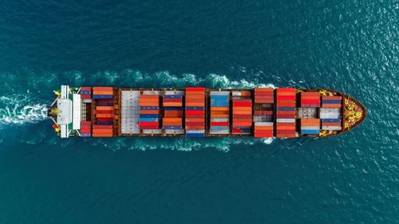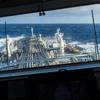BP Partners Up with Mærsk Mc-Kinney Møller Center for Zero Carbon Shipping
Oil major BP and the Mærsk Mc-Kinney Møller Center for Zero Carbon Shipping have partnered up to work on the development of new alternative fuels and low carbon solutions for the shipping industry.
As a strategic partner to the Center, BP will second experts to work on relevant research and development projects in the Center’s portfolio and contribute to the development of methodologies and optimized pathways for safe and sustainable fuel solutions for shipping. Additionally, BP will join the Center Advisory Board providing guidance for transition strategies and further development of the Center’s activities.
William Lin, BP’s executive vice president of regions, cities, and solutions said: “At BP, we want to play a role in advocating for policies to help decarbonize carbon intensive sectors like shipping.
"The shipping industry’s transition to net zero is complex and requires technology advancements and policies that will give companies across the value chain the confidence to act.
"When we work together, we can fast track development, de-risk investments and provide signals to the market that will speed up the decarbonization of the shipping industry.”
The Center CEO Bo Cerup-Simonsen said BP brought expertise in production, storage, handling, transportation, and usage of fuels "and great experience in driving safety and efficiency in shipping."
"I see enormous potential in leveraging and applying this know-how to accelerate the development of future net-zero solutions for the maritime industry," he said.
According to BP, with 70,000 ships consuming m300Tons fuel p.a., global shipping accounts for around 3% of global carbon emissions, a share that is likely to increase as other industries tackle climate emissions in the coming decades.
"Achieving the long-term target of decarbonization requires new fuel types and a systemic and regulatory change within the industry. Shipping is a globally regulated industry, which provides an opportunity to secure broad-based industry adoption of new technology and fuels," BP said .
"Industry leaders play a critical role in ensuring that research is successfully matured to scalable solutions that match the needs of industry. At the same time, new legislation will be required to enable the transition towards decarbonization," BP said.














